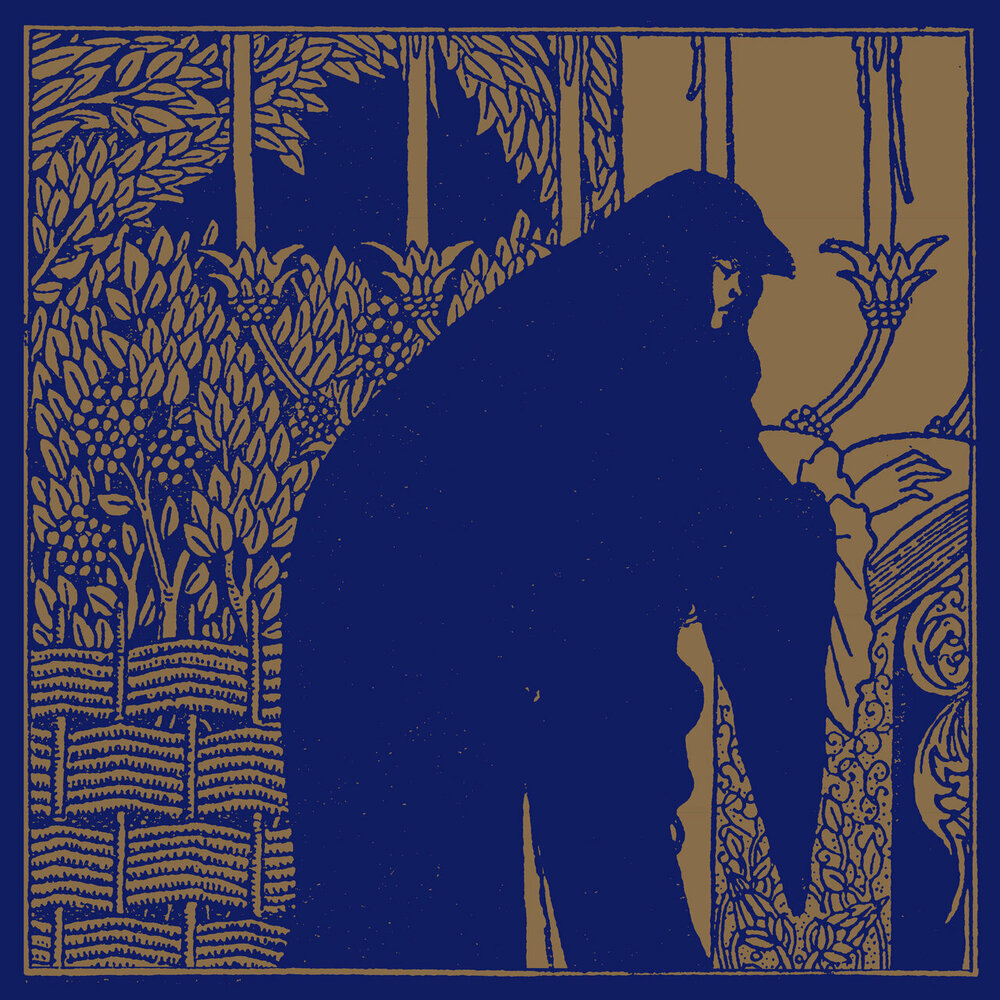 |
Country: Italy
Style: Neofolk
Rating: 8/10
Release Date: 14 Feb 2025
Sites: Bandcamp | Facebook | Instagram | Official Website | Twitter | Wikipedia | YouTube
Ever in search of sounds I haven't heard before, I leapt at this ninth album by Corde Oblique, one of the "main ethereal progressive neofolk bands from Italy", as Wikipedia would have it. They're a solo project for Riccardo Prencipe, who's best known for Lupercalia, but with a whole collection of guest musicians. He may well play all the guitars but I don't believe he contributes vocals, not least because the majority of the singers are female. Guests take care of all the traditional rock instrumentation, along with other folk instruments, Edo Notarloberti most notable on violin.
There are at least three sounds here.
A few of the tracks on the first half often combine the folk that's at the heart of everything this band does with heavier guitars. Whether you call it post-metal or another sub-genre, it's clearly rock based and seems entirely consistent with some of the bands they've shared stages with, like Anathema, Opeth and Moonspell. The most overt example is the midsection of The opener, The Nightingale and the Rose, which evolves from ethereal vocals over violin into a doomy grandeur, then a bouncy groove metal riff and staccato drums that are reminiscent of the panic section in Metallica's One.
The vocalist here is Rita Saviano and, while she seems to be the band's lead singer because hers is the voice we hear on the first three tracks, she's actually the most frequent vocal collaborator on this album. After those three, she vanishes for a while and the album loses part of its charm, drifting into instrumental territory. She does return, for Souvenirs d'un autre monde and Selfish Giant, but her absence is notable.
As the first half grows, it trawls in a folky prog. John Ruskin is built like a prog rock take on folk dance and it grows wonderfully, especially during a punkier second half, to the point that it feels surprising that it's a six and a half minute song. Once we're caught up in the build, time doesn't matter any more. The Father Child features plenty of prog rock and much of it is built on electric guitar wailing peacefully. A Step to Lose the Balance is more prog metal than prog rock, but it's still prog and the most consistently heavy track on the album. It even finds a Black Sabbath-like escalation towards the end.
The third sound is purer folk without any of those modern touches. Those aspects drift away as it moves into its second half and the songs turn into a purer form of neofolk. It's not entirely fair to call Christmas Carol the boundary between the two, because there are elements of this sound in the first half too, but it's absolutely a boundary. I'm sure it has value on its own merits, with the spoken word performance of actress Maddelena Crippa powerful even to someone without any understanding of Italian. There's an almost post-rock backdrop that's pleasant enough but it's a spoken word piece and it kind of helps to speak the language. So it becomes an interlude.
Ironically, given that I'm coming to this from a rock and metal perspective, I have to say that I'm all over this second half which features very little of either. While John Ruskin is on my list of highlights, the rest of them are after Christmas Carol. There's a delicious sound to kick off Bruegel's Dance with an achingly slow beat, growing violins and what sound like distant shoes dancing along the planks of a pirate ship. If it makes us want to move, Tango di Gaeta does that even more powerfully, as the tango we expect given that title.
The former is instrumental but the latter is elevated through an emotional vocal from Caterina Pontrandolfo, which carries ages of sadness in its timbre. She only sings this one, while Denitza Seraphim only sings Eleusa consumpta, but they both deliver commanding performances which happen to be completely different. Pontrandolfo grabs us subtly, letting her emotion sway us to lose the rest of the world while we listen to her. Seraphim is authoratitive, almost ordering us to bow before her voice. Neither looks for ethereal, not least because their voices are far deeper than Saviano's.
Frankly, all three of them are wonderful, but it's Saviano who dominates, partly because she has five songs to cement her presence instead of just one, partly because that includes the opening three which set our expectations in place for this album and partly because Souvenirs d'un autre monde, once it gets moving, finds the most abiding groove. It's the longest song here, running a little over seven minutes, but it builds like an elegant whirlwind. Sure, it relies very heavily on a mood that it generates but it does generate an incredible mood.
I'm not sure how many albums Corde Oblique have released. Wikipedia lists eight studio albums by 2020, one of which was live in the studio, plus three digital albums, whatever that means. The band's website mentions seven albums since 2005. I don't believe either source includes this one, so let's just say it's quite a few albums. All I know is that I like this one a great deal and, while it's likely that not all earlier releases follow the same sound, I'm deeply interested in diving into that back catalogue.


















